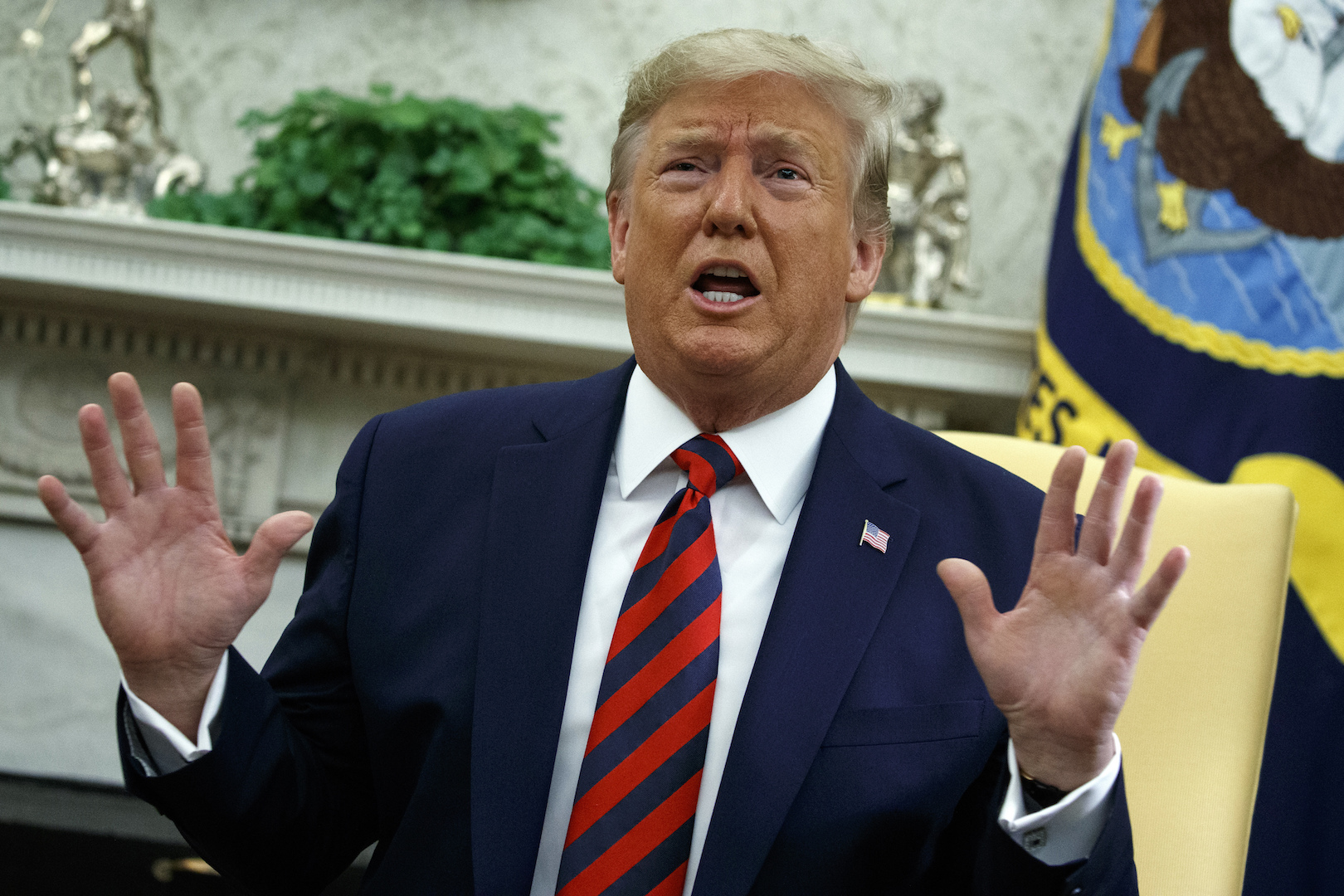The 3 Biggest Takeaways From the Whistleblower Complaint Against Trump

Credit to Author: Morgan Baskin| Date: Thu, 26 Sep 2019 14:13:39 +0000
WASHINGTON — The White House attempted to cover up the contents of a late-July phone call between President Trump and his Ukrainian counterpart, according to a whistleblower complaint declassified and released Thursday morning.
The complaint, which prompted House Speaker Nancy Pelosi (D-Calif.) to launch a formal impeachment inquiry against Trump this week, warns that Trump used his personal attorney to “advance his personal interests” and to solicit election interference from a foreign country.
Chiefly, Trump requested that Ukrainian President Volodymyr Zelensky “look into” political rival Joe Biden and his son, Hunter, who previously served on the board of a Ukrainian gas company.
The complaint also says that some officials in the U.S. government and intelligence community were “deeply disturbed” by Trump’s call with Zelensky. Some were already talking to White House lawyers about whether the president at abused his office, the document says.
The complaint goes on to describe how Trump’s personal lawyer, former NYC Mayor Rudy Giuliani, followed up on Trump’s request, attempting to meet with top Ukrainian officials on Trump’s behalf.
Here are the biggest takeaways from the document:
The White House appeared to cover up Trump’s July 25 call with Zelensky.
“In the days following the phone call, I learned from multiple U.S. officials that senior White House officials had intervened to ‘lock down’ all records of the phone call, especially the official word-for-word transcript of the call that was produced — as is customary — by the White House Situation Room,” the whistleblower wrote.
READ: A staged reading of Trump's call with Ukraine President Zelensky
The whistleblower continued: “White House officials told me they were ‘directed’ by White House lawyers to remove the electronic transcript from the computer system in which such transcripts are typically stored for coordination, finalization, and distribution to Cabinet-level officials.”
Instead of following that protocol, the whistleblower wrote, “the transcript was loaded into a separate electronic system that is otherwise used to store and handle classified information of an especially sensitive nature.”
This action was, according to the whistleblower, abnormal.
“One White House official described this act as an abuse of this electronic system because the call did not contain anything remotely sensitive from a national security perspective,” the whistleblower said.
“This set of actions underscored to me that White House officials understood the gravity of what had transpired in the call.”
2. Rudy Giuliani met with Zelensky’s advisers.
The complaint also alleges that Rudy Giuliani, Trump’s personal attorney — who is not a government employee — attempted to meet with top Ukrainian officials several times over the course of the summer.
Multiple U.S. officials also told the whistleblower that, on or around August 2, Giuliani reportedly traveled to Madrid to meet with one of Zelensky’s advisers, Andriy Yermark.
“The U.S. officials characterized this meeting, which was not reported publicly at the time, as a ‘direct follow-up’ to the President’s call with Mr. Zelenskyy about the ‘cases’ they had discussed,” the whistleblower wrote.
Giuliani also reportedly privately reached out to a number of other advisers to Ukraine’s president, including his chief of staff and the acting chairman of the Ukrainian Security Service. The whistleblower wrote that it is unclear whether those officials met or spoke with Giuliani.
3. Giuliani’s involvement disturbed the U.S. intelligence community.
The whistleblower writes that, beginning in mid-May, the whistleblower began hearing from multiple U.S. officials that they were uncomfortable with Giuliani’s contact with the Ukrainian government, particularly because he was sending messages to those officials that diverged from official U.S. policy.
“I heard from multiple U.S. officials that they were deeply concerned by what they viewed as Mr. Giuliani’s circumvention of national security decision making processes to engage with Ukrainian officials and relay messages back and forth between Kyiv and the President,” the whistleblower wrote.
(Giuliani had confirmed several times in April and May of this year that he was “focused on encouraging Ukrainian authorities to pursue investigations into alleged Ukrainian interference in the 2016 U.S. election and alleged wrongdoing by the Biden family,” according to a summary of news articles in the complaint.)
READ: The impeachment inquiry is on. Here's what happens next.
The whistleblower also heard that State Department officials spoke with Giuliani “in an attempt to ‘contain the damage’ to U.S. national security” done by his involvement in the matter.
Those same State Department officials “sought to help Ukrainian leaders understand and respond to the differing messages they were receiving from official U.S. channels on the one hand, and from Mr. Giuliani on the other,” the whistleblower wrote.
Read the full document below.
Cover: President Donald Trump speaks during a meeting with Australian Prime Minister Scott Morrison in the Oval Office of the White House, Friday, Sept. 20, 2019, Washington. (AP Photo/Evan Vucci)
This article originally appeared on VICE US.